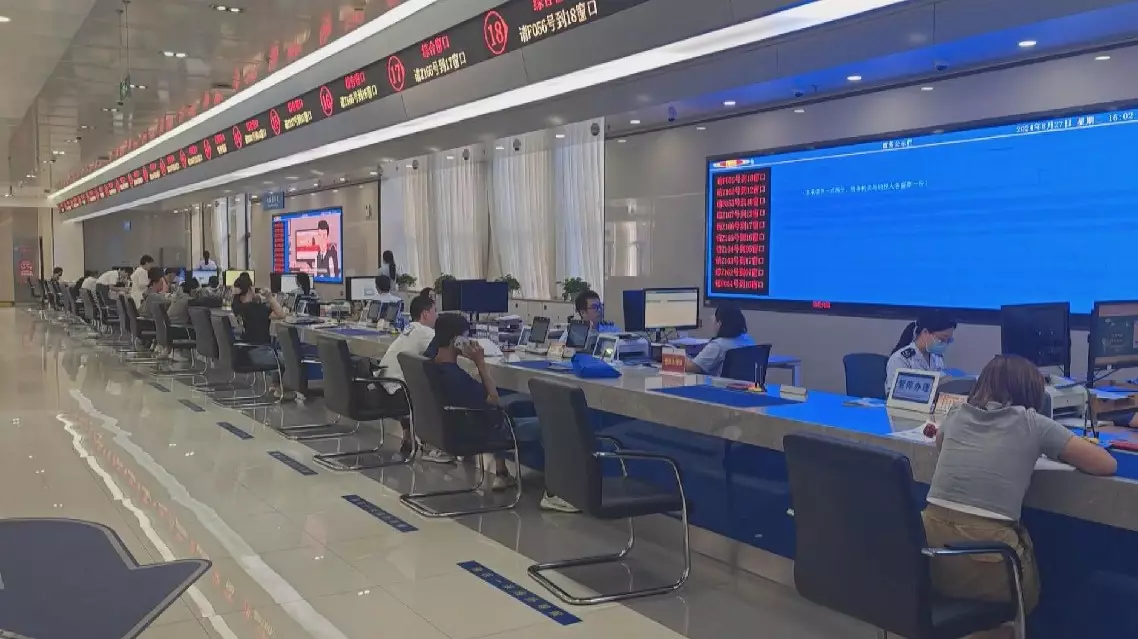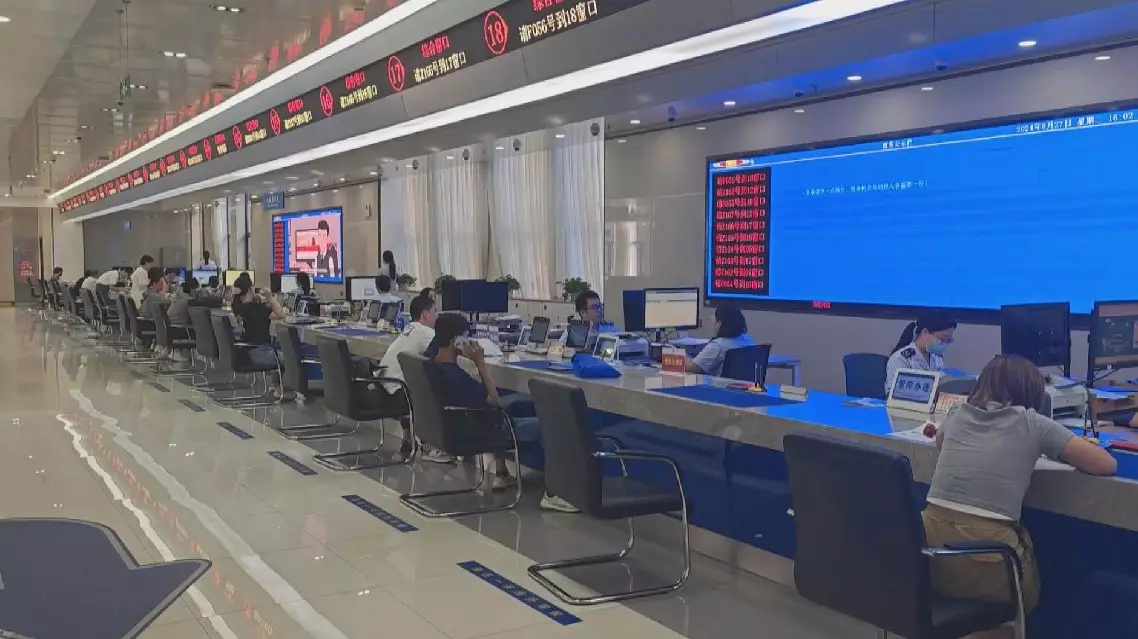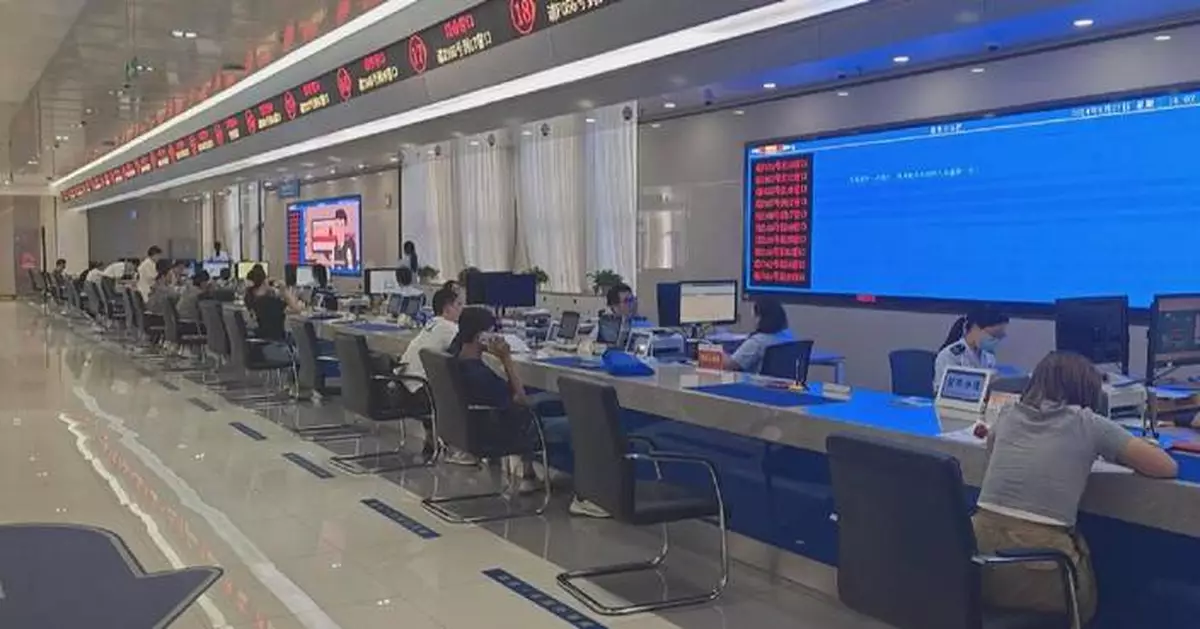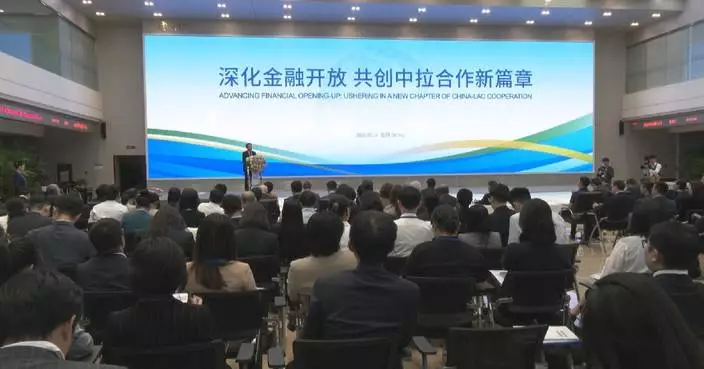China's general public budget revenue dropped 2.6 percent year on year to nearly 14.78 trillion yuan (around 2.10 trillion U.S. dollars) in the first eight months of 2024, according to the data released by the Ministry of Finance on Friday.
Excluding the special factors like tax reduction policies, the revenue increased around 1 percent year on year, said the ministry.
The central government collected around 6.54 trillion yuan in revenue, down 6.2 percent year on year, while local governments saw revenue edge up 0.4 percent to over 8.24 trillion yuan.
Specifically, the domestic value-added tax (VAT) exceeded 4.59 trillion yuan, down 4.9 percent year on year in the eight months, while the excise tax exceeded 1.13 trillion yuan, up 4.2 percent year on year.
The corporate income tax approached 3.14 trillion yuan, a year-on-year decrease of 5 percent, while the individual income tax reached 968.5 billion yuan, a year-on-year decrease of 5.2 percent.
The VAT and excise tax on imports exceeded 1.26 trillion yuan, up 1.8 percent year on year, while tariffs reached 163.4 billion yuan, down 2.7 percent year on year.
China's general public budget spending expanded 1.5 percent year on year to nearly 17.39 trillion yuan in the eight months, according to the Ministry of Finance said Monday.
Specifically, various sectors registered growth in the spending, including that in social security and employment, which increased 3.3 percent year on year to exceed 2.82 trillion yuan.
The spending in education exceeded 2.56 trillion yuan, up 0.5 percent year on year, while nearly 1.50 trillion yuan in agriculture, forestry and water conservancy, up 5.4 percent year on year, and about 1.30 trillion yuan in urban and rural communities.
General public budget revenue refers to income for government finance through participation in the distribution of social products. It is the financial guarantee to ensure the functioning of government.
General public budget spending refers to the allocation of funds raised by the national fiscal authorities to meet the needs of economic construction and various undertakings.

China's general public budget revenue down 2.6 pct in Jan-Aug

China's general public budget revenue down 2.6 pct in Jan-Aug
The United Nations Security Council has called on Israel to lift its blockade on Gaza, where food supplies are dwindling and the humanitarian situation continues to deteriorate.
Addressing an emergency meeting of the UN Security Council on Gaza's worsening humanitarian crisis on Tuesday, Tom Fletcher, the UN under-secretary-general for humanitarian affairs, said the humanitarian situation in Gaza is deteriorating rapidly amid an Israeli blockade that has prevented the entry of food, medicine, water and shelter materials for more than 10 weeks.
"We have life-saving supplies ready, now, at the borders. We can save hundreds of thousands of survivors. We have rigorous mechanisms to ensure our aid gets to civilians, and not to Hamas. But Israel denies us access, placing the objective of depopulating Gaza before the lives of civilians," he told the security council.
According to Fletcher, some 70 percent of Gaza's territory is either under displacement orders or within Israeli-militarized zones, leaving hundreds of thousands of civilians trapped in shrinking areas without basic necessities.
Every single one of the 2.1 million Palestinians in the Gaza Strip face the risk of famine. One in five face starvation, Fletcher said, quoting a report from the United Nations Food and Agriculture Organization (FAO).
Israel blocked the entry of goods and supplies into Gaza on March 2, following the end of the first phase of a January ceasefire deal with Hamas. It resumed attacks on Gaza on March 18, with at least 2,720 Palestinians killed since then.
Fletcher described an Israeli plan for aid distribution in the Gaza Strip as a "a fig leaf for further violence and the displacement" of Palestinians in the enclave.
"The Israeli-designed distribution modality is not the answer. It practically excludes many, including people with disabilities, women, children, the elderly, the wounded. It forces further displacement. It exposes thousands of people to harm. It sets an unacceptable precedent for aid delivery, not just in the OPT (the Occupied Palestinian Territory), but around the world. It restricts aid to only one part of Gaza while leaving other dire needs unmet. It makes aid conditional on political and military aims. It makes starvation a bargaining chip," he said.

UN Security Council urges Israel to lift Gaza aid blockade amid famine warnings






















































